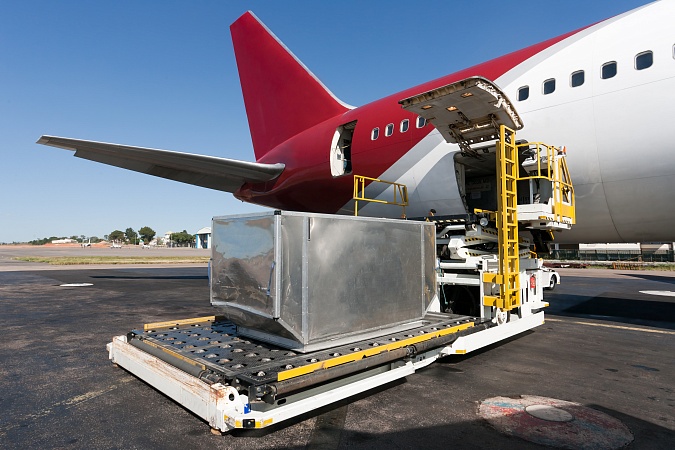Severe bottlenecks and disruptions that have been affecting freight traffic at Europe’s biggest air cargo hub Frankfurt Airport since the start of October are continuing and have driven flights, cargo and further disruption and delays to other European airports, with no obvious signs of the situation easing, according to freight industry sources.
Stephan Haltmayer, CEO of Germany-based forwarder Quick Cargo Services, described the current ground handling service quality at Frankfurt as «terrible», attributing this to a lack of additional manpower that was needed to offload belly cargo from passenger mode aircraft and also to handle charter arrivals.
«The ground handling agents are not flexible enough to react to market needs. Meanwhile, carriers are avoiding flying to Frankfurt airport and prefer other airports. Truck companies are no longer accepting the long waiting hours because they cannot plan the allowed driving time for their drivers. Therefore, they refrain from pickups at Frankfurt.»
He continued: «This ‘disaster’ is costing forwarders a lot of money. Customers are not willing to accept the extra storage and truck waiting times. Whether it’s peak or not it makes no difference. Service levels are in a bad way — lost shipments in crowded warehouses, cargo out in the rain on the tarmac, damage, part shipments and more. All this has increased.»
Jason Breakwell, commercial director for pan-European air freight road feeder services operator Wallenborn Transports, explained to Lloyd’s Loading List that «there has been significant disruption at Frankfurt since the start of October — notably at the largest handling facility operated by FCS — and the situation is still not good.»
Multiple factors
«Whilst higher cargo volumes are a factor, other causes, including more freighters, more mixed ULDs, cabin cargo, lack of staff and the employment of inexperienced personnel have also contributed. The ‘final straw’ at Frankfurt seems to have been the implementation of UCC (Union Customs Code) requirements which, with hindsight, should not have been attempted during peak season.»
He continued: «Overflow warehouses at Frankfurt have also become saturated and trucks have been waiting up to three days to be unloaded. The diversion of flights from Frankfurt initially eased some pressure but ultimately led to logjams at other airports because cargo could not be dispatched to Frankfurt.»
Breakwell said that some forwarders at Frankfurt and other airports had stopped accepting deliveries, and this had added to the volumes piling up at on-airport handling facilities and on the ramp.
He went on to note that «rolling congestion» has been affecting road feeder services at other European airports in recent months with Amsterdam Schiphol especially bad during October.
«We’ve not seen delays elsewhere on the same scale as Frankfurt and Amsterdam,» he added. «Dwell times across Europe have been excessive, but all-cargo airports such as Leipzig, Liège, Luxembourg, Ostend and Paris-Vatry are mainly transit airports with fewer forwarders.
A challenge for months to come
«I expect this volatility to be a challenge for months to come and am concerned that ‘skimpflation’ is creeping into supply chains whereby prices go up, service levels go down and end users start to ask why they’re paying a premium for air cargo. The industry as a whole needs to address this if it is to maintain the positive momentum achieved during the pandemic period.»
At company level, Breakwell explained that Wallenborn has increased capacity to address lower productivity caused by congestion and has deployed more capacity to hubs that are receiving more charter and diverted flights to ensure supply chains remain intact.
«We’ve also employed more customer service staff to keep shippers and consignees informed and to implement contingencies,» he added. «With major hubs gridlocked and delays exceeding a week, supply chains have fragmented and become less predictable.
«Online tracking is not enough when shipments are not moving and our customers have benefitted from access to specialists able to assess the situation and offer solutions.»
Charters added to other airports
US forwarder Flexport revealed last week that it had recently launched a weekly air charter service from Hong Kong to Paris-CDG in response to congestion at Frankfurt and also at Amsterdam Schiphol.
And UK freight forwarder Metro Shipping reported last week that «while there are different situations at different airports, the demand for air cargo is exceptionally high and ground-handling operations are proving to be consistently ineffective at servicing the upturn in freighters, and passenger freighters, with particular problems at Heathrow, Amsterdam, Brussels, Frankfurt and Liege. And that’s just in Europe,» with problems also at US and other global air freight hubs.
Despite the significant congestion that is impacting air cargo hubs globally, Metro said «there is every likelihood that the already exceptionally high air freight prices will climb further as supply chain congestion drives further ocean-to-air conversion for essential peak inventory. ‘Distressed ocean freight’ has one repair option on the deep-sea destinations and origins and that is conversion to air freight which we are seeing daily driven by consumer and manufacturing demand chains needing stock, inventory and components to function.»
The forwarder noted that the resumption from this month of passenger operations in the critical transatlantic market is very welcome, but said «transatlantic supply has little impact on the China outbound routes that comprise the bulk of holiday peak volumes and it is not expected to result in a sudden easing of the essential air cargo market. Many aircraft were already flying routes that were profitable from cargo alone. It is just that they will now finally fill up the upper decks of the aircraft as traveller restrictions are withdrawn and they are allowed to resume global access and passenger sentiment in flying begins to resume.»
Challenges to handling processes
Contacted by Lloyd’s Loading List, Max Conrady, VP for cargo development at Frankfurt Airport, said the strong growth in cargo traffic "characterised by a high number of loose and light pieces, is challenging the handling processes. Also, the pattern of traffic has clearly changed since the rebound in passenger volume.
"Passenger and freight airlines often schedule flights at very short notice. On occasion, this leads to isolated but sharp peaks in volume during the course of any given day and at weekends. Even though we are only at around half 2019 passenger traffic levels in total, these peaks come close to the volumes experienced pre-crisis.
«This requires the support of a great number of staff. At the same time, the strong, sustained growth in air cargo, especially with cabin load on preighters, again ties up a large number of personnel. As a result, passengers may experience lengthier waiting times at both departures and arrivals and cargo processes may also be delayed.
«The continuous collection of imported goods is also essential to smooth cargo handling processes. However, for various reasons it happens more often that goods remain longer in the warehouses on-site and thus take up space for newly-arriving goods.»
Conrady added: «All local partners have implemented numerous measures to relieve the situation. Fraport has, for example, all available employees in the cargo area on duty (no short-time working). In addition, if necessary, we check whether we can provide additional space for storage. We are also in constant contact with the cargo handling agents when it comes to transport equipment (dollies, metal sheets, containers) in order to ensure efficient use.»




